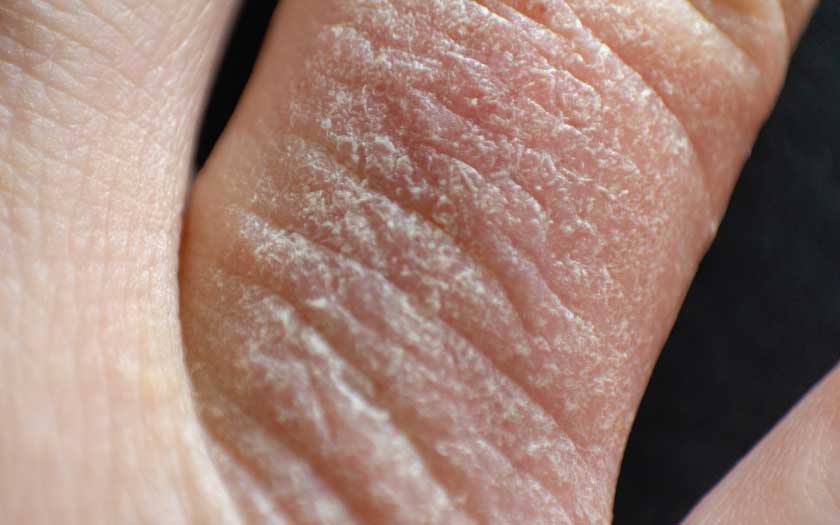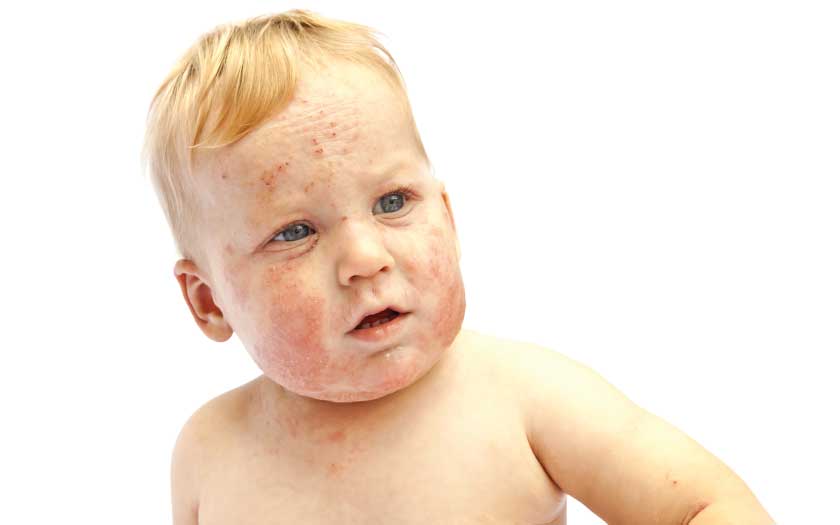Eczema in babies and children is quite common, yet the actual cause of this bewildering skin condition has not yet been properly established. It’s known, however, that certain things can cause it to get worse.
When a baby’s eczema flares up, it could be indicating that the immune system of the skin is having an adverse reaction towards something – and this could be an environmental or emotional trigger. This leads to symptoms such as intense itching and all the discomforts that come with it. Read on…
Preventing and/or controlling an eczema flare-up takes some perseverance, but it can be done. At the end of the day, there has to be, after all, a root cause for our skin to malfunction and this includes the outbreak of eczema, where the skin’s integrity is being compromised and it is facing some serious trouble (intense itches and flare-ups). Anyone who has eczema or has to care for a child with eczema can already imagine the level of discomfort one has to face – that deep, intense itch, the sting of inflamed skin, the social stigma it comes with the breakouts, etc. Remember, please, that if you have a child with eczema, you are not a bad parent, and it isn’t your fault!
Find out what triggers a flare-up
When it comes to eczema triggers, it’s not possible, as you may have found out by now, to completely avoid all the culprits! You can, however, control a situation from getting worse. The key is to be vigilant and do your best to keep your baby away from as many of the known triggers as possible.
Some of the common things that can trigger an eczema flare-up include:
- Changes in temperature or humidity (environmental factors)
- Chemical irritants such as parent’s perfumes, harsh soaps, detergents, and household cleaners, etc.
- Physical irritants, such as clothes made of rough or scratchy fabrics, like wool or even certain synthetic clothing material.
- Allergens: If your baby is allergic to dust, pollen, mold, animal dander, etc, you can expect a flare-up when your little one comes to contact with any of these.
Infections of any kind may also cause an eczema flare-up in sensitive skins, so parents are advised to work closely with their children’s doctors to figure out what triggers their eczema flare-ups and how to overcome them.
Babies get stressed out too
Eczema and its triggers, like all other skin ailments, cannot possibly be merely skin deep. It has to come back to one’s general health and whatever that has to do with getting a person to be healthy from the inside out. This includes physical health as well as mental health – Stress could be a major factor here, and yes, babies do get stressed out.
Did you know this surprising but true fact?
Emotional stress and anxiety, which include feelings of helplessness, feeling unloved or separation anxiety may cause eczema flare-ups in some children

Firstly, if a rash or skin issue gets out of control, you’ll have to see a doctor. You will have to inform your baby’s doctor about your family’s medical history. It may not be easy to tell at first if your baby’s symptoms are due to eczema or some other skin problem, but the following signs may mean it’s eczema:
- Very itchy skin
- Rash that first appeared before the age of five
- An itchy rash appears on different parts of the body, depending on the child’s age (for example, the face, elbows, or knees in babies)
- The rash tends to flare up, then go away for a while before coming back again
- Personal or family history of asthma, hay fever, or eczema
- Very dry skin
- Very sensitive skin
The areas of the body that eczema tends to affect vary with age. In babies, a patchy rash usually appears on the face, elbows, and knees. In older children, the rash tends to appear more behind the knees, inside the elbows, on the sides of the neck, and the wrists, ankles, and hands.
the right skin moisturiser to address your child’s dry skin
Babies who have eczema tend to have dry skin that itches. Itching is the most troublesome eczema symptom. You can help prevent itching by keeping the skin moist. Apply bland, unscented moisturizing creams to the skin several times a day. You may need to apply them more often when the weather is dry or hot. Tip: Pay extra attention to your choice of a skin moisturiser for your child’s skin. It will be a good idea to ask your doctor for advice on this. Alternatively, you can also ask other parents who are in the same boat with you for recommendations.
What the doctor needs to know:
Symptoms for eczema can be complicated, for not only can it vary from individual to individual, but it may also change over time. That’s why the doctor may want to see your child more than once. A doctor will also need to know what kind of medicine if any were used in the past to treat it, as well as what kind of medicine if any, have been used to treat allergies or asthma if your little one suffers from them. You’ll also have to provide additional information such as how long has your baby had the rash, and what seemed to trigger the rash.
In some cases, skin tests or blood tests may be needed to help rule out other skin problems. If there is doubt about what your child has, your doctor may recommend a dermatologist (skin doctor) or allergist (allergy doctor).
Tips on preventing and controlling flare-ups
When it comes to managing your child’s eczema, it need not get complicated. The key is actually to keep in simple!
- When bathing your baby, use lukewarm water and gentle non-soap cleansers. An organic product will be your best bet, or, a product meant for baby eczema. Pat the skin dry after bathing so a little moisture is retained on the skin.
- Apply a moisturizer within three minutes after drying off. One of the main facts about eczema management is to not let the skin become too dry. If it does get dry, find ways to quickly soothe it to prevent it from becoming itchy and lead to a flare-up. Keeping your child’s skin properly moisturised is important, and we cannot over-emphasise on this.
- When clothing your baby, avoid scratchy materials like wool or any material that retains heat. Instead, choose soft clothing made of cotton.
- You’ll have to mind what you use to wash your little one’s clothing too – always go for the mildest product you can find use a mild laundry detergent that has no scent.
- You should also try to keep your baby from sweating excessively, for that too can trigger a flare-up.
Be aware of what causes your baby’s eczema to flare up, such as and avoid them at all costs. void any known eczema triggers that may have caused your baby to have flare ups in the past, such as certain clothing, perfumes, pollen, mold, dust mites, etc, animal dander, and avoid them at all costs.
Lastly, try to minimise your baby’s stress – don’t wait too long to comfort and soothe the little one whenever he or she is in distress., for it will only serve to worsen the condition, making it more and more uncomfortable for your little one to endure.
Proper treatment is crucial when dealing with your baby’s eczema
Constant and intense itching can disrupt a baby’s wellbeing. It is also capable of robbing a baby of precious sleep and rest. Eczema can also affect the way a baby’s skin looks. Other problems linked to eczema include:
- Scarring caused by constant scratching
- Infection of the skin caused by intense and constant scratching
- Very inflamed skin with open sores can also become infected.
Eczema treatment may vary from creams to lotions to ointments. Your doctor should be able to you a good recommendation for the best treatment for your baby. A good eczema treatment will effectively relieve or stop the itch, reduce skin reddening, and help your baby’s skin look healthy again. Be sure to use them as your doctor advises.


